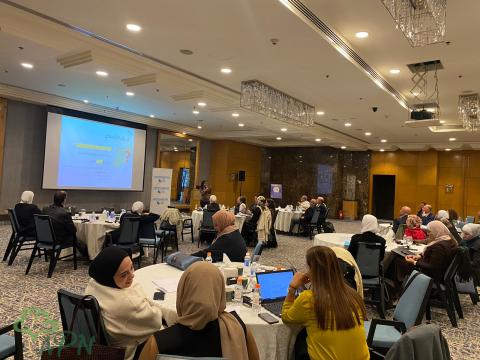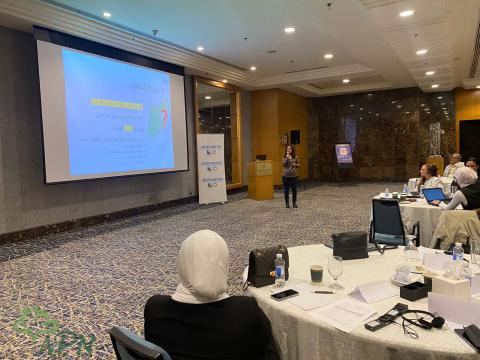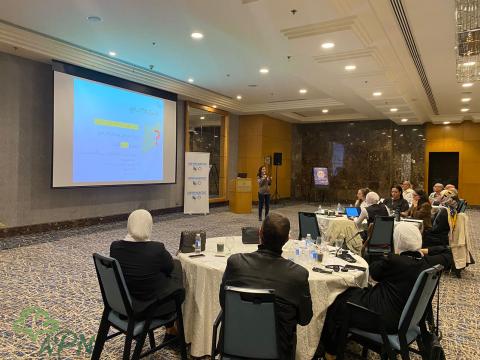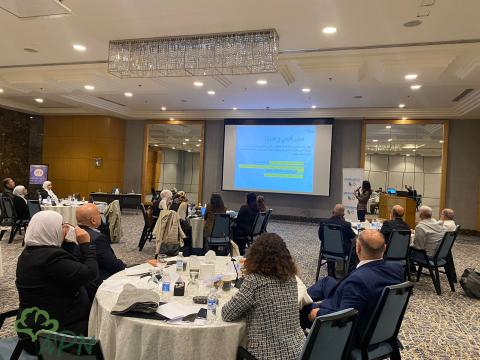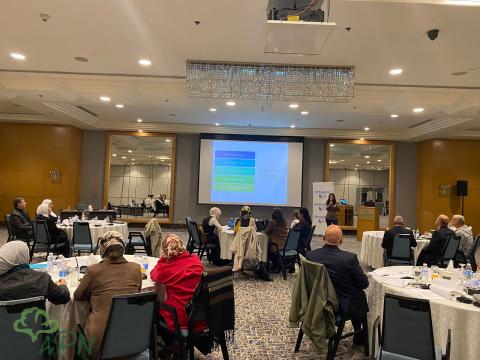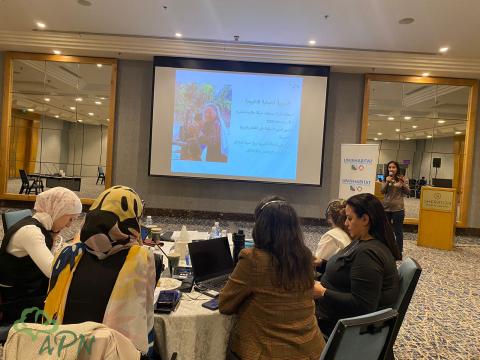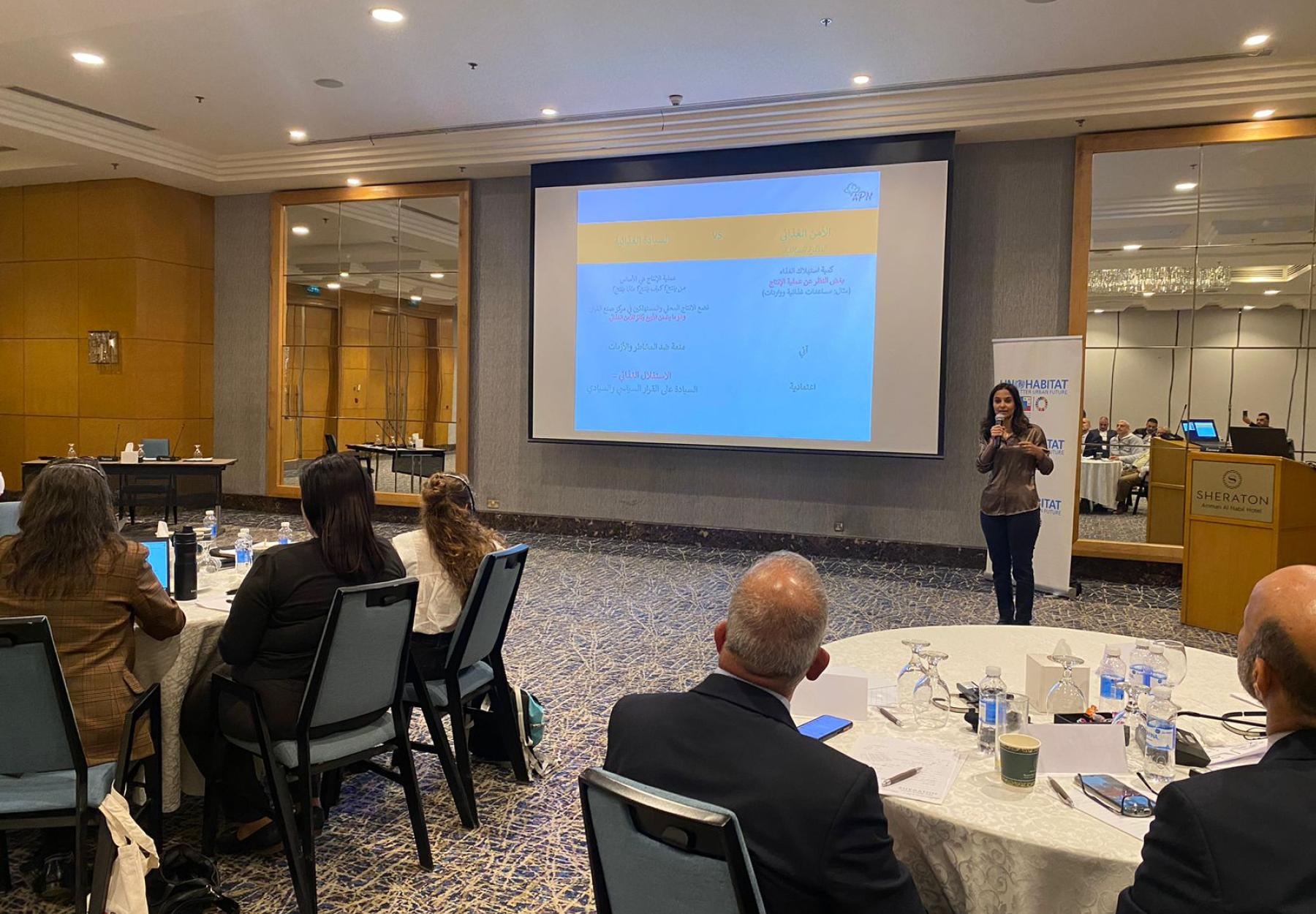
APN | Amman
12 November 2024
APN General Manager, Mariam Al Jaajaa, stated that although agriculture serves as the main source of income for around 75% of rural and Bedouin communities in Jordan, its direct contribution to the Gross Domestic Product (GDP) does not exceed 5.2%. This is accompanied by the rapid degradation of agricultural land, with only 11% of arable land being utilized. She made these remarks during a lecture at a workshop organized by UN-Habitat in collaboration with the Arab Land Initiative.
She explained that this decline is attributed to the economic reform policies that began in 1989, which included reducing government support to farmers and eliminating customs duties on imports. This led to an over-reliance on importing more than 90% of the country’s food.
Al Jaajaa also emphasized the challenges posed by urban sprawl on agricultural land and the impact of the Israeli occupation on natural resources, including water pollution and the destruction of agricultural lands, which have worsened the environmental and food crises.
In light of these challenges, she highlighted the importance of coordinating efforts among stakeholders to ensure effective and sustainable land management that supports the rights of small farmers, as well as fostering participatory policymaking to achieve sustainable development, particularly in light of settler-colonial ambitions, which require an immediate and coordinated response.
